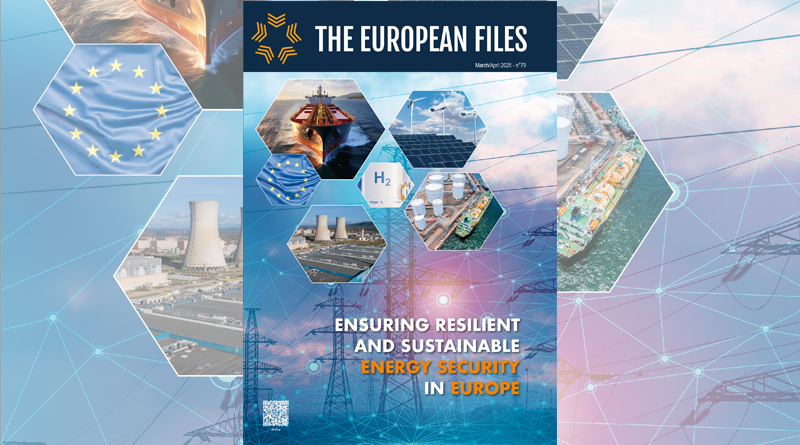
Ensuring Resilient and Sustainable Energy Security in Europe
Europe’s Energy Future: Between Urgency and Ambition
Europe stands at a decisive turning point in its energy future. Confronted with competitiveness challenges, geopolitical pressures, and the necessity of strategic autonomy, the European Union must accelerate its adaptation to ensure a secure, sustainable, and competitive energy system. Three major axes emerge: energy independence, technological innovation, and investment in infrastructure.
The war in Ukraine has starkly exposed Europe’s energy vulnerabilities. For decades, Europe relied on fossil fuel imports, particularly Russian gas, which accounted for nearly 45% of European consumption before the conflict. This excessive dependence left the continent exposed to geopolitical shocks, forcing the EU to urgently rethink its energy supply.
The REPowerEU plan, launched in May 2022, marked a turning point. By diversifying its energy sources—particularly through increased imports of liquefied natural gas (LNG), a strategy fortunately prepared since 2016, and expanding infrastructure—Europe managed to reduce its dependence on Russian gas much faster than expected. But this is only the first step. The challenge now is to ensure that these short-term adjustments fit into a sustainable and coherent energy strategy.
Europe’s ambition is clear: to reach 45% renewable energy by 2030. Solar and wind power will play a central role, with the goal of installing more than 320 GW of solar capacity by 2025 and 600 GW by 2030. However, innovation is not limited to energy production.
Europe must also invest massively in energy efficiency and smart grid management. Currently, 42.5% of distribution infrastructure is over 40 years old. A major modernization effort is needed to integrate renewable energy, improve grid resilience, and reduce energy waste. Without investments in these critical infrastructures, the green energy produced risks being underutilized.
Nuclear energy, as well as new technologies, including small modular reactors (SMRs) and green hydrogen, could also play a key role in achieving true technological neutrality. However, these solutions require funding and a pragmatic approach that avoids regulatory deadlocks.
While the energy transition is an ecological necessity, it is also a matter of economic competitiveness. Today, European businesses pay three to five times more for electricity than their North American counterparts. This energy disparity weakens European industry against competitors like the United States and China, where massive subsidies support business competitiveness.
In February 2025, the EU launched the Action Plan for Affordable Energy. This program aims to lower energy costs, attract investment, and ensure greater resilience against crises. But to be effective, this policy must be accompanied by a truly integrated European energy market, with harmonized taxation and coherent regulation among member states.
Europe can no longer afford to wait. To succeed in its energy transition, it must:
1. Invest massively in infrastructure: €584 billion will be needed by 2030 to modernize electrical grids.
2. Develop technological sovereignty: Currently, 80% of solar panels installed in Europe are manufactured in China. It is urgent to bring the production of strategic equipment back to Europe.
3. Strengthen education and energy efficiency: Raising awareness among citizens and businesses about optimizing their consumption is a priority.
Europe stands at a historic crossroads. The energy transition is underway, but it must be accelerated. With China and the United States advancing rapidly in energy and technology, the Old Continent must stop being a spectator and reclaim its role as a key player in shaping its future. The time for compromise is over—bold decisions must be made.
Editor-in-Chief
Laurent ULMANN



